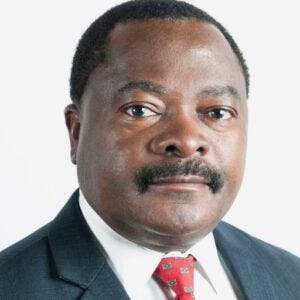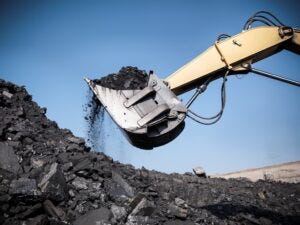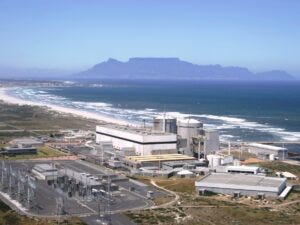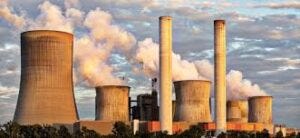By Dumisani Sigogo – Southern Africa Editor, The African Gazette More calls are being made for Africa to add nuclear power generation not only as part of its energy mix, but also as a vehicle that will help the continent achieve more than 9 of the 17 Sustainable Development Goals (SDG).
As COP26, UN conference on climate change is taking place in Glasgow, energy and economic analysts and experts proclaim that by harnessing the nuclear energy, Africa will not only be complying with global trends of moving to cleaner energy but will also be eradicating poverty and strengthening its economy to compete at a competitive scale.
The South African Institute of International Affairs (SAIIA) an independent public policy think tank that advocates for a well-governed, peaceful, economically sustainable and a globally engaged Africa, says: “The UN SDG 7 calls for access to affordable, reliable, and sustainable modern energy. Furthermore, SDG 13 calls for taking urgent steps to combat climate change and its impact.”
“The continued use of firewood as a source of heat by both rural and urban dwellers has a negative impact on SDG 15 which talks about the management of forests and halting biodiversity loss. The need to look at nuclear energy as a major component of Africa’s future energy mix is imperative, as it does not emit greenhouse gases during operation,” reads the paper.
In a paper presented by SAIIA titled Atoms for Africa’s Development: The Case for Nuclear Power Generation in Africa, the organization lamented how notwithstanding having vast energy resources, 48 of the sub-Saharan African countries shared the same grid-connected power capability as Spain, despite having a combined population 18 times bigger than Spain.
The paper which is supported by the Norwegian Ministry of Foreign Affairs, reveals that situation cannot be sustainable since more than half of this energy capacity is in one country- South Africa, which also happens to have the continent’s only nuclear power plant situated in Koeberg, Cape Town.
According to the 2019 Africa Energy Outlook report, Africa referred to as the ‘dark continent’ from a colonial perception, has 600 million people that do not have access to electricity. Because of the cost of electricity, an estimated billion Africans use unclean or hazardous fuels to cook including those in urban areas that have electricity.
More African countries have expressed the desire to close the energy gap by bringing nuclear energy into the mix. Arguments have been brought forward by environmentalists and anti-nuclear lobbyist citing safety and costs of building nuclear reactors.
Pro renewable activist, Moffat Shoko, asserts: “When it comes to nuclear energy, African countries also face other challenges such as financing, safety, security, legislature, governance, supporting infrastructure and political will.
But,Knox Msebenzi, the Managing Director of Nuclear Industry Association of South Africa (NIASA) argues that the benefits of nuclear energy capacity will solve South Africa and Africa’s inadequate electrification and power problems. He asserts that nuclear plants are not an extravagant option since the benefits of the energy generated from them far outweigh the mentioned problems associated with nuclear.

South Africa, one of the continent’s economic power house is currently facing load shedding and the country’s Department of Mineral Resources and Energy recently made a request for information relating to building nuclear capacity of 2,500mw.
Msebenzi debates that the losses to the economy incurred because of power cuts are greater as compared to the costs of building nuclear energy reactors.
In 2017, two civil society organizations Earthlife Africa Johannesburg and the Southern African Faith Communities’ Environment Institute (SAFCEI), won a court application that stopped the controversial R1-trillion nuclear deal that would have added 9,600mw to the grid.
The anti- nuclear lobbyists and some renewable energy experts say they are now worried that the new attempt by the Department of DMRE for more nuclear energy will stifle the progress being made on other renewable energy projects.
Earthlife’s Ulrich Steenkamp said “There are cheaper, safer energy options other than nuclear energy. Renewable energy, for example, are cheaper to build and requires less construction time. If the aim is to solve our load shedding and energy crisis quickly, while not plunging our economy into further debt, traditional renewable options(wind, sun and hydro) are a better, faster, and safer solution to the problems. Its far better than waiting for more than a decade and spending unbudgeted many millions of dollars to build these expensive nuclear power plants which over run their budgets.”
Msebenzi, the renowned nuclear energy expert enunciates that had South Africa continued with its nuclear programme, the country would not be experiencing power cuts.
“In fact, if we had continued with our nuclear programme after commissioning Koeberg which has operated accident free since 1984, South Africans would never have known the vocabulary of load shedding, because we would have had reliable energy 24/7.” Says Msebenzi.
According to Dr Rebecca Maserumule of the Department of Science and Innovation, an analysis by the Council for Scientific and Industrial Research, the country’s economy lost more than R338 billion due to the rolling blackouts from 2007.
Nuclear experts and engineers warn that over 12,000 MW coal capacity is scheduled for decommissioning and the idea that these can simply be replaced by renewable sources is unrealistic and suicidal. They say nuclear energy should be added to the optimal mix of technologies, since it can provide the stability to Africa’ power problems because with the water, sun or the wind, the grid gets whatever this three are producing at a given time. They say nuclear will produce an unbroken reliable supply of energy.
Msebenzi agrees that there is no energy source without problems and that nuclear power will not come online as faster as other renewable energy options, but African countries need to plan for the future.
He informs The African Gazette that the BRICS block of countries and nuclear vendors from the west are also very interested to participate in the South African nuclear bid and that this could be a gateway to the rest of the continent.
On the criticism of nuclear plants taking too long to construct and usually overrun budget and time, Msebenzi informs that Small Modular Reactors (SMRs) are being developed, which are cheaper than large scale reactors and take much shorter time to build. He adds that, the units if placed on coastal cities, can be used for water desalination.
The SMRs are said to have a reduced timeline for implementing and are aptly suitable for small but growing electricity grids.
Economists who are urging the strengthening of nuclear as an additional remedy are articulating that South Africa, uses twice as much energy to produce manufactured products as the rest of the developed world, thereby leaving South Africa behind in terms of efficiency, productivity and competitive in the global business environment.
NIASA highlights that South Africa, a country which is one of the founding members of the International Atomic Energy Agency (IAEA) and has a well-established National Nuclear Regulator which is well recognized and respected by its peers worldwide, is losing its nuclear physicists to countries like the UAE that have embarked on nuclear.
The National Union of Mineworkers (NUM) fears that they will be about 57,000 job losses in the labor intensive coal mining sector as a result of the highly skilled nuclear energy procurement.
But, according to former Energy Minister Dipuo Peters, if the construction of the initially planned six new nuclear power plants is to be resuscitated, the program has the potential of creating 70,000 new jobs.
Prof. Benjamin Jabez Botwe Nyarko, Director General of the Ghana Atomic Energy Commission (GAEC), recently stressed that nuclear energy should not be feared but used not just to solve Africa’s energy problems but to assist as well in fields such as health, food production, water sanitation and environmental protection.
The IAEA lists Ghana, Egypt, Morocco, Kenya, Niger, Nigeria, Sudan, Algeria, Tunisia, Uganda, Zambia and Rwanda.as the 12 African countries that have approached it requesting feasibility studies. While the World Nuclear Association states that Libya, Senegal, Tanzania, Namibia and Ethiopia have expressed interests to start nuclear power programs.
Joe Kachali, a Zambian born Nuclear Scientist educated in Russia hints: “Nuclear is imperative for Africa and this will put African economies on an equal footing with the developed world and and this will make the eradication of poverty a possibility.”
Dumisani Sigogo is a senior journalist based out of Durban. He is currently the Southern Africa Editor for The African Gazette.
The post Nuclear Energy Africa: A Closer Look first appeared on The African Gazette.





